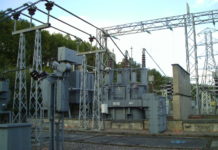 Jo Butlin, MD of consultancy EnergyBridge, says Npower’s demise is symptomatic of a failing market. Government and Ofgem must act fast – before the wheels come off entirely.
Jo Butlin, MD of consultancy EnergyBridge, says Npower’s demise is symptomatic of a failing market. Government and Ofgem must act fast – before the wheels come off entirely.
As the tragic news of 4,500 job losses from Npower reverberates around the UK, there is finally a real sense of shock and concern on the direction of the energy retail market, as the human impact of market changes comes into focus. This news just adds to existing red flags which highlight real concerns about the sustainability of the market going forward.
The ‘Big Six’ are no more
While Labour has announced its plan to renationalise the so called Big Six, Friday’s announcement comes shortly after the announcement that SSE is selling its customer portfolio to Ovo, leaving us with at most with a Big Four of the original Big Six. There have been rumours for a long time that we’d see one or more of the Big Six exit the retail market, so it should be no real surprise. It is entirely rational for shareholders and business leaders to look to exit a market which fundamentally has low visibility of future value.
The challenger brands are the new heroes. Or are they?
The four biggest, Shell, Ovo, Bulb and Octopus have all been positioned by the media as the new heroes, growing rapidly and taking market share off the Big Six.
But let’s get real. Though these businesses may be more efficient in their ongoing systems and operations than the legacy players, supply margins are equally skinny for them and critically they also need to fund their investment costs as they grow their businesses. All four made substantial losses in their last financial year and three of the four have net liabilities on their balance sheets. With Bulb’s latest accounts due on 31/12/19 and Octopus’ accounts due 31/1/20, the industry will be watching closely to see how the businesses are faring. We all wish them well, but it will be a miracle to be able to produce uplifting results without a lot of spin.
The minnows are struggling to keep their heads above water
The employment market is shrinking
While the Npower losses have hit the headlines, there are few businesses in the market who have not laid off staff or stopped recruitment. The sector is shrinking and knowledge and expertise is being lost. Whilst, a rational response to the market being squeezed, this loss of expertise is a real issue given the complexity of the industry. It is easy to talk about compensatory innovation and system development, but you still need the people who really know how it all works to spec and deliver the improvements.
Market intervention is killing the market
The last few days has seen the media turn on the Price Cap as the trigger for Npower’s demise. That is too simple an argument, but the principle of material intervention in effective market operation has to be questioned. It is relatively simple to model a theoretical ‘efficient’ retail supplier and set a price cap based on this model. But the model ignores operational and commercial reality associated with growing or re-engineering a business in a market shifting at a pace never seen before. Material investment in product innovation and development are what suppliers really want to be focused on, but can’t when they are in a cash constrained mode of survival. The price cap is designed for the historical market model focused on supply – that is not the model where sustainable retail businesses will operate going forward.
Opportunity is there but unattainable
The frustration is that there has never been a more exciting time in this market. The combined opportunities provided by technology development, carbon reduction and the emerging world of prosumers are huge. But existing businesses can’t focus on these opportunities when under the financial pressure they are currently faced with….and new models cannot emerge at pace whilst we operate under the existing regulatory regime.
So where to next?
Some of the answer may depend on the results of the 12 December. But whatever the election outcome, there is an urgent need for government and Ofgem to look at the fundamentals; take some of the pressure off the suppliers, whilst there are still some in the market; accelerate the removal of regulatory barriers to allow a rapid shift to the offering of innovative products; and let the market operate as a market without artificial constraints.
Equally the media rhetoric has to change. Suppliers are genuinely not public enemy number one. They are staffed with normal people, nearly all of whom are working hard to deliver excellent service to their customers. Excitement in the industry comes from the ambition to deliver better low carbon and innovative products and services to customers not from making excess money from them. The media has been a large influencer in driving policy and sentiment to where it has got to and needs to take some accountability.
If we don’t see real change, and quickly, sustainability of the competitive market could become a real issue – and if the wheels come off there will be very little time to put them back on.
This piece was first published at energybridge.co.uk
Related stories:
Eon wields the knife at Npower
£100m tab for failed energy suppliers
Big cracks emerging in energy retail
Why is energy regulation so glacially slow?
Click here to see if you qualify for a free subscription to the print edition or to renew.
Follow us at @EnergystMedia. For regular bulletins, sign up for the free newsletter.




Thank you for this brilliant summary of what is happening to the Energy industry in Britain. So happy to hear that we are not the only ones suffering from strangling regulation from OFGEM.